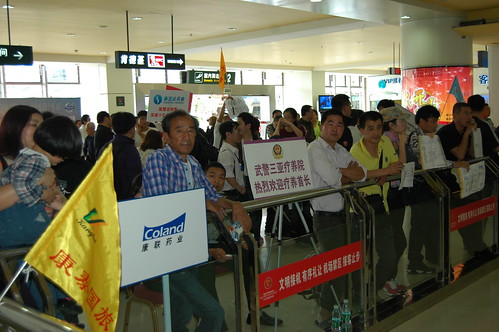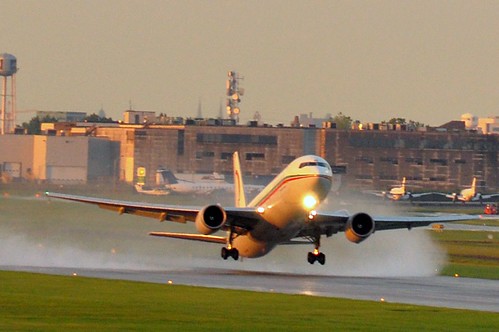The Holy Family of Jesus, Mary, & Joseph (C)
Picture: cc Choo Yut Shing
My dear friends, do you know what it means when a young man suddenly turns to his girlfriend one day and says, Want to BTO? This is, of course, the common Singaporean version of a marriage proposal. B-T-O, as you know, stands for build-to-order, the name of a system used by the Housing Development Board, or HDB, to allocate its apartments. To BTO is simply to apply for a HDB flat together. A flat that is built only when enough orders have been placed. B-T-O. Build-to-order. For many couples in Singapore, this is the first step towards starting a new family.
Now I’m sure we can all agree that this very pragmatic approach to proposing marriage is also highly unromantic. And yet, which of us would be so ignorant as to frown upon those who choose it? No. Most of us can understand the practical necessity that justifies this approach to starting a family. We know that, in most cases, the matrimonial home is a family’s single most valuable material possession. So it’s quite natural, even highly commendable, that great care should be taken to secure it first. To ensure that the family has a place to call home.
But if this is true of a family’s material wellbeing, can we not say the same about its spiritual health? Its holiness? Is it not just as important, if not even more so, that a family should also have a good spiritual home to call its own? But what does such a place look like? And how does a family come to occupy it? These are the questions that our prayers and readings help us to ponder, as we celebrate the Feast of the Holy Family.
Actually, the words of the opening prayer that we offered earlier, already give us an indication of where a holy family should find its spiritual home. As you will recall, we asked God to grant that we may, in the joy of your house, delight one day in eternal rewards. In other words, we asked to live in God’s house. And in our readings too, as you’ve probably already noticed, we find repeated references to God’s house. They are happy who dwell in your house, O Lord. This is what we sang in response to the psalm. But what does it mean? Where exactly is God’s house?
For Hannah, in the first reading, the answer is clear. God’s house is the place where God lives among God’s people. A place that has a very specific physical location. It is found in the Temple at Shiloh. Where Hannah’s family goes on an annual pilgrimage, to offer sacrifice to God. Which is why, even though she loves her Samuel very much, Hannah is willing to leave her only son at the Temple, soon after he has been weaned, to live there for the rest of his life. In addition to expressing her gratitude to God, Hannah probably also wants her son to, quite literally, live in God’s house, all the days of his life. And so to become holy.
There is an obvious parallel between the experience of Samuel and Hannah in the first reading, and that of the boy Jesus and his parents in the gospel. Here too, the action centres around the Temple, the house of God. Now no longer located at Shiloh, but in Jerusalem. And, here too, we see a child remaining in the Temple. Although, this time, the initiative comes from the child himself. Did you not know, Jesus asks his poor parents, that I must be busy with my Father’s affairs? Or, in another translation, Did you not know that I must be in my Father’s house?
Clearly then, according to our Mass texts, for a family to be holy, it needs to make its home in God’s house. But where exactly is God’s house to be found today? If we were to stop our reflection at this point, it would seem that God’s house is limited only to specific physical locations. Such as the Temple at Shiloh and in Jerusalem. Or perhaps even this church. Aren’t churches like ours also sometimes referred to as God’s house? But if that were the case, wouldn’t it mean that all our families will have to move into the church if we want to be holy?
Thankfully, that is not the case. For although Jesus loses himself in the Temple for some days, unlike Samuel, he doesn’t remain there for the rest of his life. The gospel tells us that he eventually returns to Nazareth with his parents, and lives under their authority… And yet, even though Jesus, Mary, and Joseph do not live in the Temple, we are still expected to believe that they remain in God’s presence. They make God’s house their spiritual home. This is what makes them a Holy Family. But how do they do this? And how do we imitate them?
The second reading gives us the answer, when it tells us that those who keep the Lord’s commandments live in God and God lives in them. And God’s commandments are these: that we believe in the name of his Son Jesus Christ and that we love one another as he told us to. To believe in Jesus, and to love one another. This is how families can be expected to remain in God’s presence. This is how we live in God’s house. This is how we become holy.
Which is actually very simple to understand and to preach. But not so easy to do. For isn’t our life, our family life, often filled with many shiny things that tempt and distract us? As well as with many shadowy things that burden and break us? Ambitions and worries that often move us away from the peace and joy of our spiritual home in God, towards locations of chaos and conflict. What can we do when this happens? How to remain in God’s presence? In God’s house?
We find a helpful answer in the opening sentence of the second reading. Think of the love that the Father has lavished on us, by letting us be called God’s children; and that is what we are… In times of temptation and of trial… And also in times of relative calm… Perhaps even as a daily discipline… Think of God’s love… Think of the coming of Christ at Christmas… Think of the Lord’s Dying and Rising… As we are doing now at this Mass… Think of how, through the mystery of his loving sacrifice on the Cross, we have all become children of God… Members of the Father’s holy household…
Isn’t this a concrete way for us to locate the holy presence of God in our daily lives? To make God’s house our spiritual home? When we do this, as individuals and also as families, are we not, in a sense, building God’s house among us? Building it according to God’s order? The better for us to live securely in the love, joy and peace of God’s presence?
I’m reminded of these words from a well-known hymn: ubi caritas et amor, Deus ibi est. Where charity and love are, there God is…
Sisters and brothers, as we celebrate the Feast of the Holy Family of Jesus, Mary, and Joseph, what must we do to build God’s house among us, and so to become truly holy? What must we do to BTO today?




